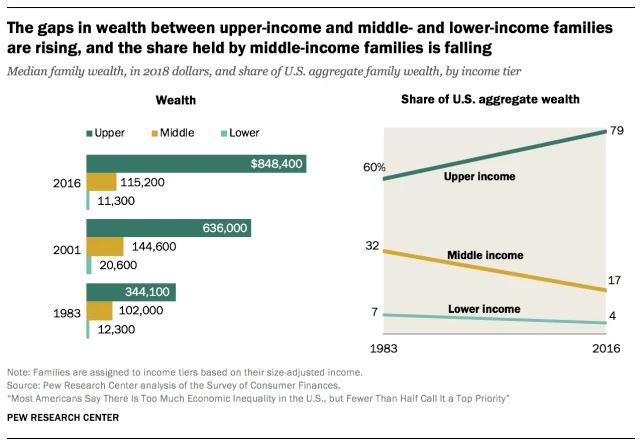So, economic inequality is rearing its ugly head again - especially with relatively fragile state of the economy.
Given that this is such a massive problem - and in light of the current debate about the Black Lives Matter movement, what can be done to reasonably address this?
According to the data, the problem appears to be getting worse since the 1980s, not better.

Source: Pew Research.
Here is another pretty good video on the subject.
A couple of factors to consider:
1. We need infrastructure, roads, railroads, police and courts, etc. etc. Reasonable government services cost money. If we lower the tax on everyone this helps everyone financially, but it limits the ability of government to do its job. If we raise taxes on everyone, these reasonable things are better covered but it negatively affects everyone financially.
2. Do tax increases really matter for people with higher incomes? Is $1 to a person who makes $20,000 a year the same thing as $1 to someone making $2,000,000 a year?
Given that this is such a massive problem - and in light of the current debate about the Black Lives Matter movement, what can be done to reasonably address this?
According to the data, the problem appears to be getting worse since the 1980s, not better.

Source: Pew Research.
Here is another pretty good video on the subject.
A couple of factors to consider:
1. We need infrastructure, roads, railroads, police and courts, etc. etc. Reasonable government services cost money. If we lower the tax on everyone this helps everyone financially, but it limits the ability of government to do its job. If we raise taxes on everyone, these reasonable things are better covered but it negatively affects everyone financially.
2. Do tax increases really matter for people with higher incomes? Is $1 to a person who makes $20,000 a year the same thing as $1 to someone making $2,000,000 a year?


Comment